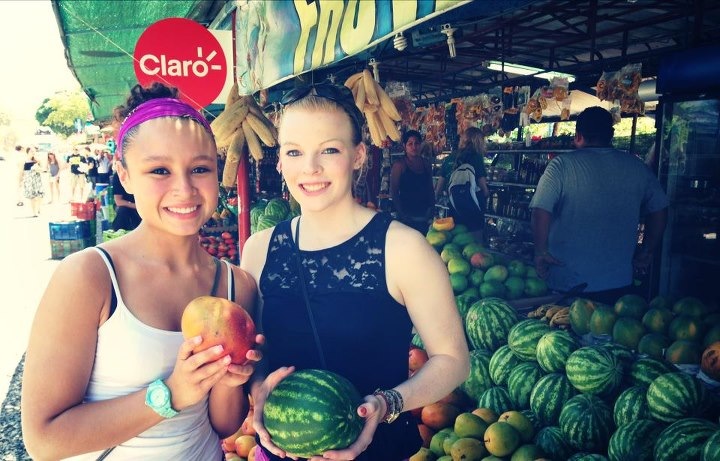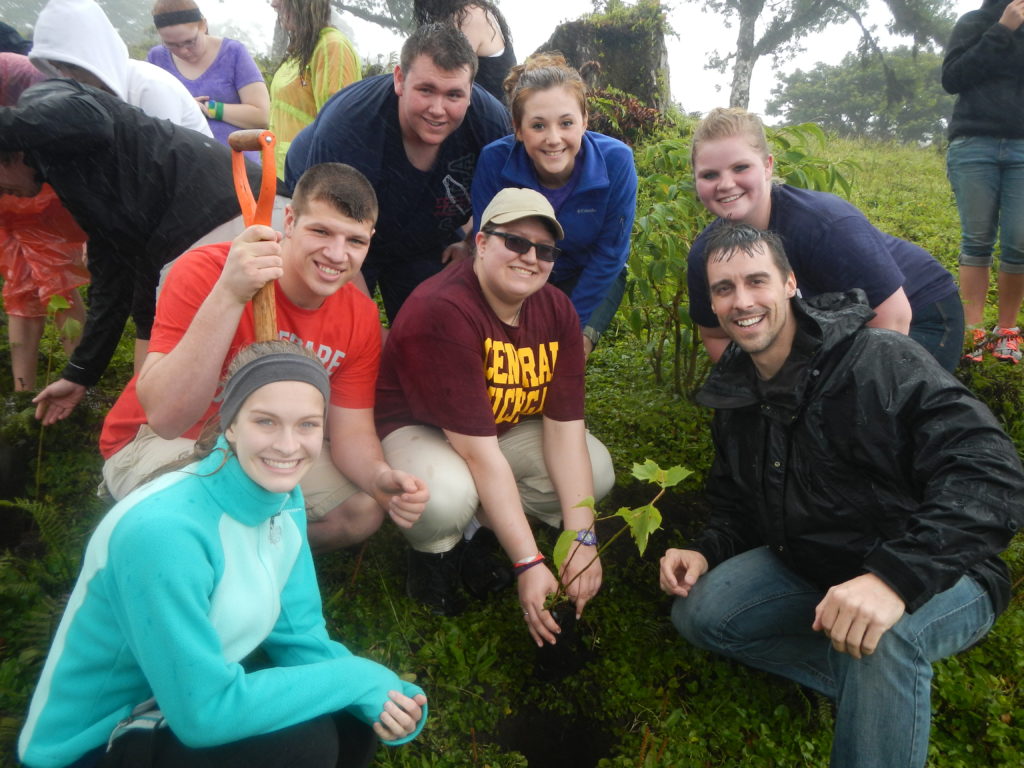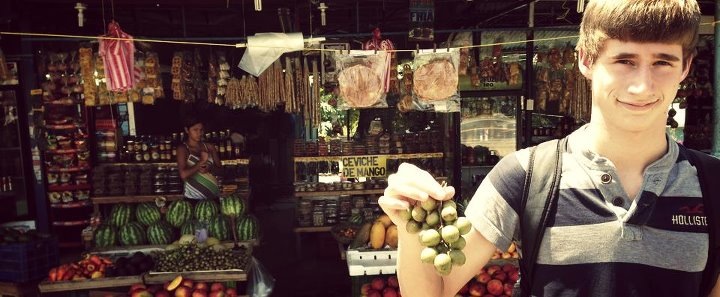When recruiting students to travel, Group Leaders use a variety of different words to describe the travel experience: adventurous, exciting, or even life changing. When working to gain the trust of parents and the support of school boards and administrators, Group Leaders must learn to use words such as academic, enriching, and of course, educational. Fortunately, when teachers and students travel with EF Educational Tours, the trip activities are guaranteed to be educational and provide a valuable experiential learning environment.
Recently, my students and I returned from the Costa Rica: A Touch of the Tropics tour. To enhance the experiential education for my students, I asked other teachers and professionals with different backgrounds to come along as chaperones. This included a biology teacher, a mathematics/chemistry teacher, a professional videographer, and a college sign language instructor that also has experience with speaking Spanish. To give our readers an idea of just how educational an EF tour can be, we put together a list of cross-curricular education content that we learned while on tour. The subject areas listed below describe what we collaboratively discovered, encountered, experienced, and/or discussed.
Agriculture
• Discussed the importance of Costa Rica’s agricultural industry, and learned about farming coffee, plantains, pineapple, tropical fruits and sugarcane
• Sampled local foods at markets, roadside stands, and restaurants
Art
• Viewed Costa Rican murals, sculptures, architecture, and other various artwork while discussing the importance of art in society and its portrayal of history
• Examined and purchased local handicrafts while interacting with local street vendors
Astronomy
• With a new and alternative view, we examined constellations and learned how they affect ocean and river tides
Biology
• Identified and classified a variety of wildlife such as birds, crocodiles, sloths, iguanas and monkeys at INBioparque, Manuel Antonio National Park, and the Tarcoles River
• Visited the Santa Elena Cloud Forest and examined moss, ferns, flowers and other vegetation
• Took a guided night hike in Monteverde to view wildlife in its natural habitat, and discussed evolution, adaptation and symbiotic relationships
Chemistry
• Learned how the pH level in soil determines the color of a hydrangea
• Studied a volcano’s toxic gasses and carbon monoxide output, and learned how the percentage of oxygen changes at different elevations and microclimates
Ecology
• Learned about the migration of animals and succession of plants due to geological shifts and the Isthmus of Panama land bridge between North to South America
• Participated in a reforestation project by planting trees in Costa Rica’s rainforest
Economics
• Studied Costa Rica’s economy, including local business support, tourism, tax distribution and global social class comparisons
English Language Arts
• Wrote about our daily activities in a journal each day and improved individual self-confidence while sharing and discussing our entries with the group
Environmental Science
• Learned about alternative energy sources such as wind, hydroelectric, solar energy and biofuel, while studying environmental sustainability and waste management methods in Costa Rica
Geography
• Discussed the geographical makeup and transportation system throughout Costa Rica’s cities, provinces, regions, capitals, oceans and borders
Geology
• Visited Arenal and Poás Volcano and learned about different types of lava
• Swam in and discussed the hot springs that are naturally heated from the volcano
• Studied weather patterns and climate changes, plus the impact of riptides, earthquakes, and mudslides
Health
• During physical activities we discussed the importance of exercise, nutrition and personal wellness, while also learning how to prepare for and handle treating injuries
History
• Discussed Costa Rica’s fight for independence from Spain and the peaceful movement to abolish their army in 1948
• Experienced Costa Rica’s traditional folklore dances and artistic oxcarts that help illustrate the country’s history
Life Skills
• Collaborated on activities as a group while also individually building self confidence
• Gained a heightened sense of awareness and understanding for life outside of our day-to-day communities
• Improved communication skills while interacting and bartering with locals
• Developed and improved individual responsibility and organization skills
Math
• Converted dollars to colones, the Costa Rican national currency
• Converted temperature from Fahrenheit to Celsius
• Calculated tips
• Discussed metric conversions such as miles to kilometers and gallons to liters
• Explored the mathematical use of shapes found in nature, such as polar graphs on a sand dollar
Music
• Learned to dance the salsa and merengue, and to appreciate other forms of music
• Attended a folklore evening and discussed how music and dance express the culture of Costa Rica
Photography
• Practiced taking photos with the correct lighting, and cropping shots
Physical Education
• Consistently remained physically active while hiking, zip-lining, kayaking, white water rafting, swimming, horseback riding, and playing soccer
Physics
• Learned about the importance of friction and momentum while zip lining
Religion
• Visited local churches and walked in a religious procession while participating in holy week celebrations
Spanish
• Learned about Costa Rican culture and customs
• Enhanced Spanish speaking, listening, and reading skills
• Experienced dialects, phrases, and expressions unique to Costa Rica
Social Studies
• Gained awareness and discussed local, national, and global issues affecting Costa Rica such as taxi driver protests, immigration, global warming and environment sustainability, and President of Costa Rica Laura Chinchilla Miranda
• Gained an true perception of life outside of the United States
• Accurately learned how foreigners perceive Americans
Technology
• Used internet devices to communicate, share photos and video across social media, and to coordinate mobile banking
I’d like to thank my friends Sandy Dubridge, Stacey Horman, Matt Gewirtz, and Steve Kelly for helping to create this cross curricular map, and also for serving as outstanding chaperones, instructors, and role models to the students on tour. We agree that many of the above topics overlap and are interconnected. I believe, however, that there is great value in discovering these topics simultaneously, rather than independently, thus helping students make connections and strengthen their understanding of each subject matter. Additionally, a travel based curriculum is a great tool for helping teachers and parents understand exactly what types of experiential learning activities take place on tour. Although many Group Leaders travel during spring break, an EF Educational Tour should not be confused with a typical spring break vacation.
When planning your next tour, consider taking along other great professionals as chaperones. This will help enhance the experiential education for your students. Generally speaking, these individuals also serve as strong role models and inspirational leaders, and have unique ways of motivating students and providing lifelong learning experiences in a fun, yet safe, environment. Work together in advance to create your own cross-curricular map. Ask your Tour Consultant for help as well, or reach out to other Group Leaders that have already taken the same tour. Share the map with students, parents, administration, and school boards. Your efforts in researching the educational value of the tour well in advance will go a long way in helping you secure the support and approval you need to make it a go. In the end, it will also help ensure a truly educational experience for your students, as well.
Scott is a high school Spanish teacher and basketball coach. He began traveling with EF Tours in 2001 and has led 8 student tours to various Spanish-speaking countries. Scott strongly believes that student travel builds self-confidence and inspires students to develop and work towards long-term goals.
Related articles



